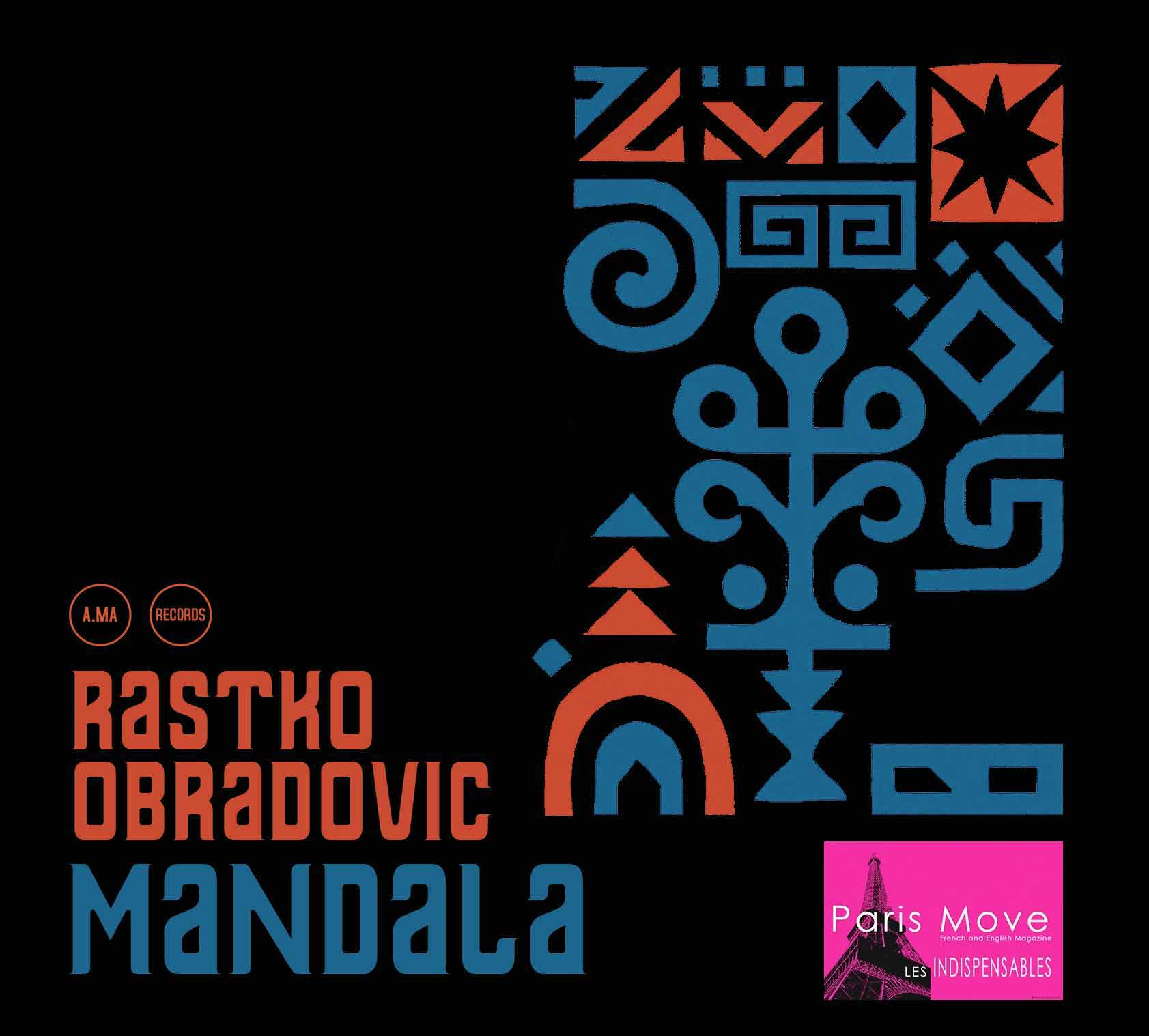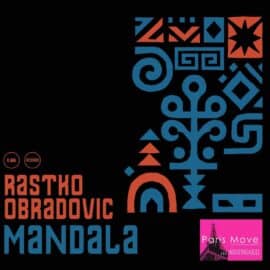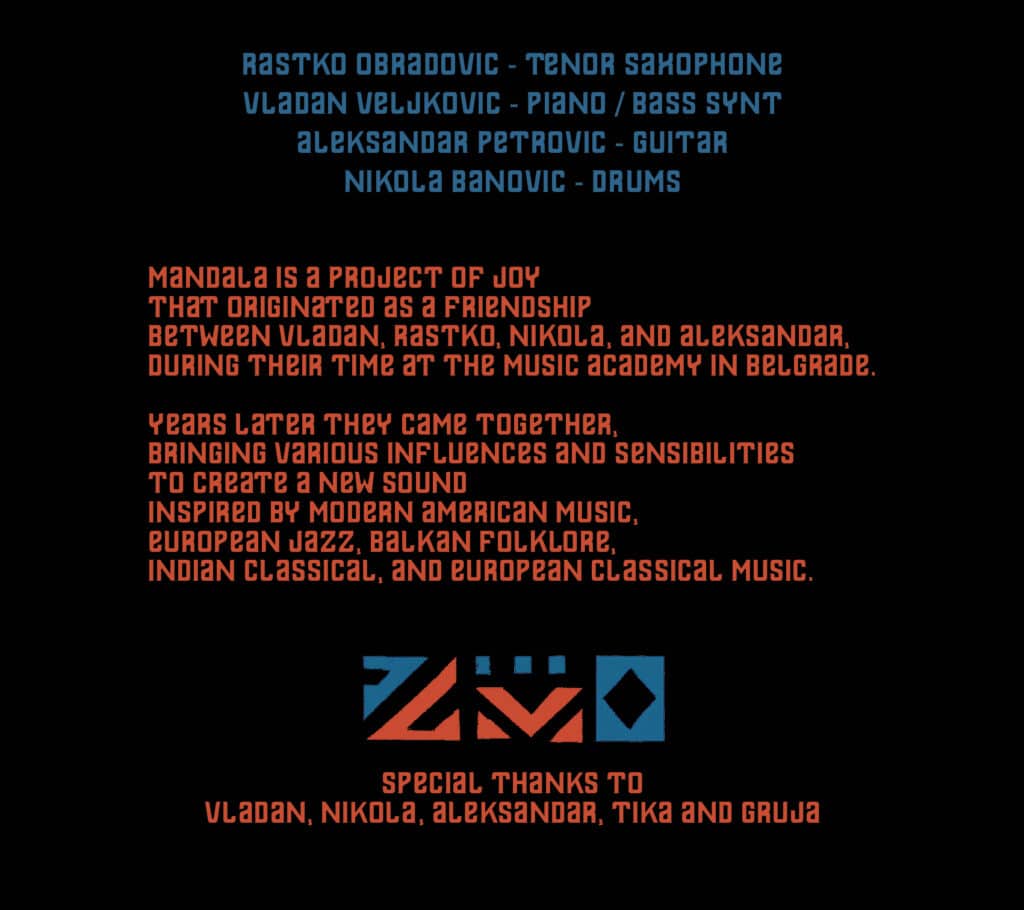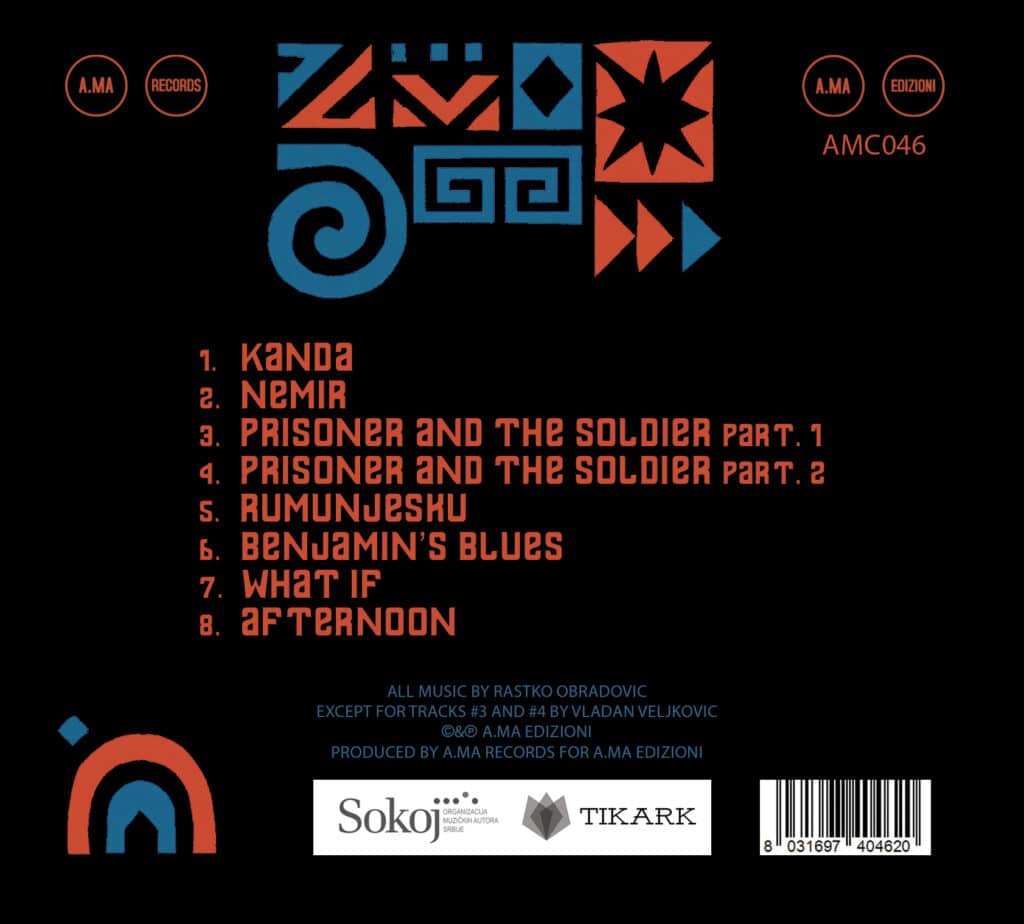| Jazz |

As many readers know, Antonio Martino has built his label A.MA Records into a quiet powerhouse of European jazz. His taste in artists is as sharp as it is adventurous, reflecting a continent-wide tradition that, like its American counterpart, thrives on multiplicity, multiple sources, multiple voices, and multiple ideas colliding in constant reinvention. It is within this spirit that Serbian saxophonist Rastko Obradovic emerges with Mandala, his debut solo album and a bold step into the international conversation.
Obradovic is hardly a newcomer. In his home country he already holds a prominent position as first alto saxophonist with the Serbian Radio-Television Big Band, a post that has given him not only institutional recognition but also a platform to collaborate with an array of world-class musicians. His credits include work with Tunisian oud master Dhafer Youssef, Russian horn innovator Arkady Shilkloper, pianist Bojan Z, keyboardist Vasil Hadzimanov, bassist Nenad Vasilic, and sitarist Sudeshna Bhattacharya. Before Mandala, he appeared as a sideman on several A.MA Records projects, from the intimate lyricism of Sanja Markovic and Irina Pavlovic to the modernist explorations of the Shijuka Quintet and Milos Covovic. Each role seems to have been a stepping stone, preparing him to articulate his own vision.
That vision is not rooted in imitation. While traces of Serbian folk traditions lie beneath the surface, Mandala does not lean on folkloric markers for identity. Obradovic treats these influences as raw material, colors in a broader palette, rather than defining features. His sound is instead the product of his journey: a synthesis of rigorous classical training, deep immersion in modern jazz language, and a restless search for new forms of expression. The result is music that feels contemporary and cosmopolitan, at times so untethered from geography it could pass for an American recording, until a rhythmic shift or melodic inflection reminds the listener of its European roots.
Debut albums often reveal a musician’s character, and Obradovic has chosen ambition over accessibility. He avoids the easy road of lyrical simplicity, instead presenting compositions of remarkable complexity that demand close listening and reward familiarity with both jazz and classical traditions. Nowhere is this clearer than in the two-part suite The Prisoner and the Soldier, whose uneasy atmosphere and dramatic arc seem to echo Europe’s current anxieties. Whether or not intended as a direct political statement, the work resonates in a moment when Russian aggression has unsettled the continent and raised once-unthinkable specters of wider conflict.
That connection is not accidental. Jazz has always been attuned to the urgency of the times, whether in the United States, where it gave voice to civil rights struggles, or in Europe, where it has long absorbed the region’s fractured history. Obradovic follows in that lineage, not as a protest artist but as a composer-storyteller whose music carries a contemporary poetry, shifting between light and shadow, urgency and calm. His quartet, a deliberately spare format, gives him room to stretch both as a soloist and arranger. There are no flashy gestures here, no indulgent effects; everything is built on precision, clarity, and emotional control.
What makes Mandala stand out is not only its execution but also its sense of universality. This is music that speaks across borders, able to engage both jazz aficionados and listeners who simply respond to the drama of sound shaped with intent. For Obradovic, the album represents a defining moment, the point at which a respected ensemble player announces himself as a leader with something distinctive to say. For listeners, it is an invitation into the evolving narrative of European jazz, where local roots and global visions continue to reshape what the genre can mean.
In that sense, Mandala is more than a debut. It is a statement of arrival, not only for Obradovic himself, but for the scene he represents: a Serbian jazz community whose vitality is too often overlooked, yet whose contributions deserve a place on the international stage.
Thierry De Clemensat
Member at Jazz Journalists Association
USA correspondent for Paris-Move and ABS magazine
Editor in chief – Bayou Blue Radio, Bayou Blue News
PARIS-MOVE, September 30th 2025
Follow PARIS-MOVE on X
::::::::::::::::::::::::
Musicians:
Rastko Obradovic: Tenor Saxophone
Vladan Veljkovic: Piano / Bass Synt
Aleksandar Petrovic: Guitar
Nikola Banovic: Drums



